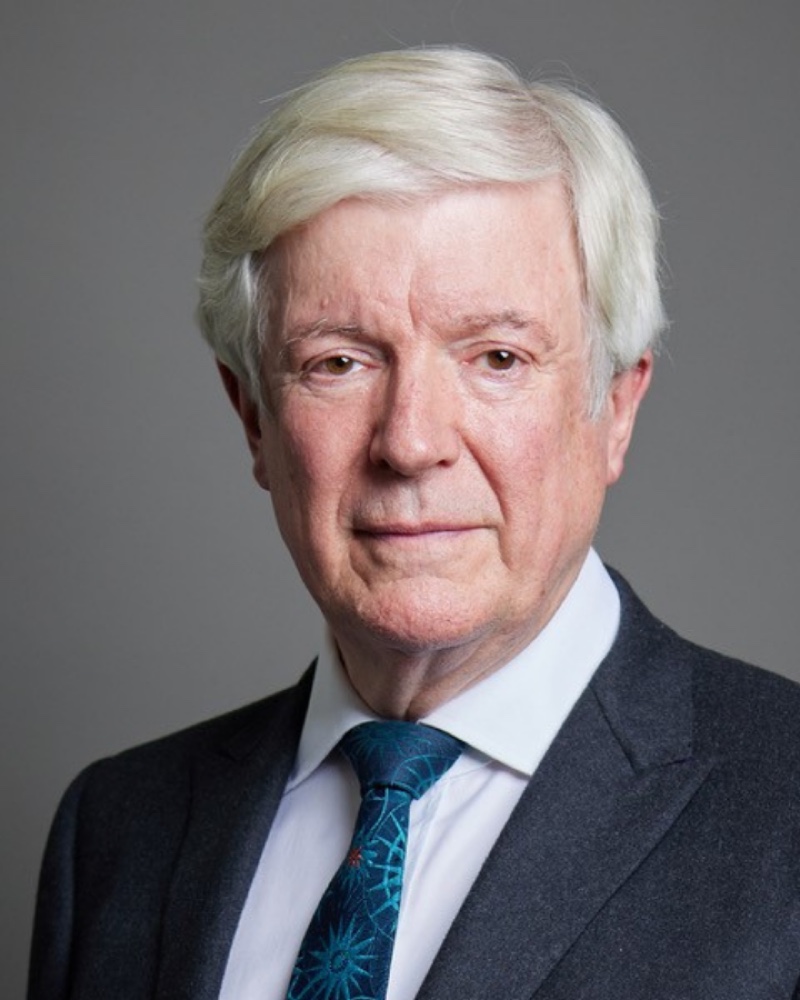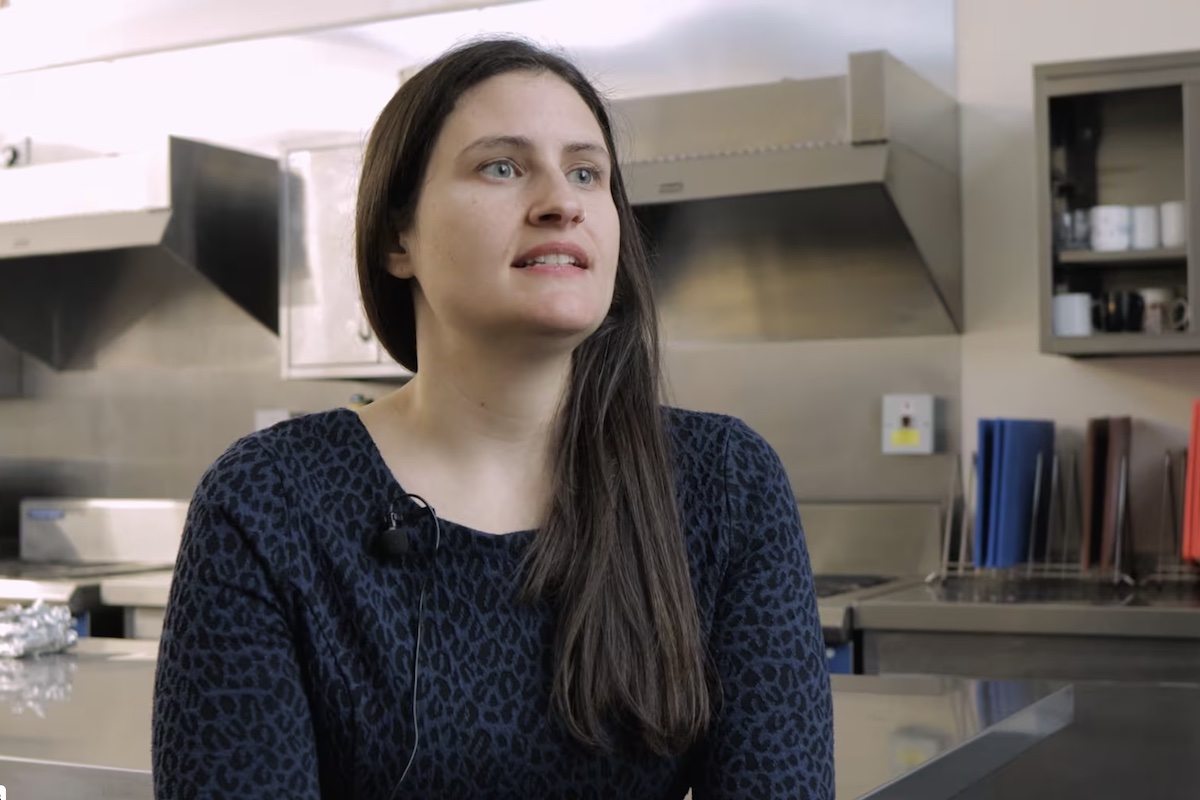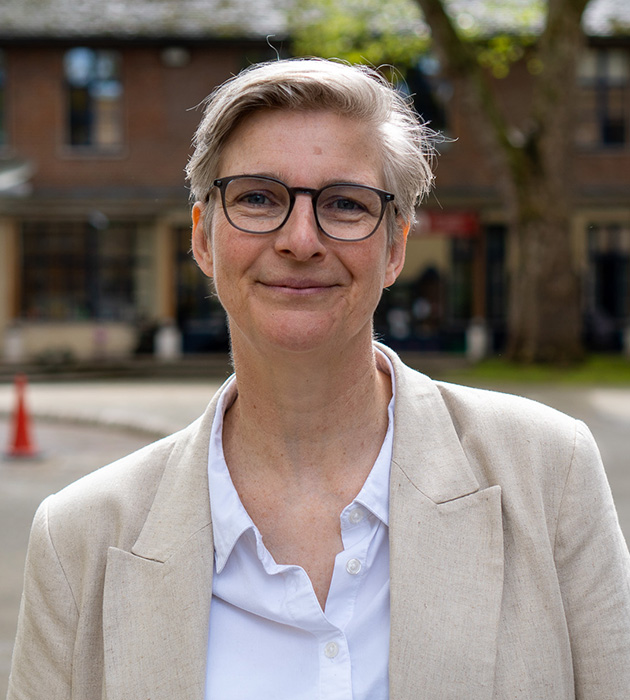Impact report
Impact report
Frontline is a children’s charity working to make life better for children at risk of ham by improving the services that support them.
I want to take the opportunity to acknowledge the efforts of social workers committed to creating lasting change, by striving to make a positive impact. The progress made by such endeavours are genuinely empowering.

“I believe the work this charity is doing is absolutely essential. Frontline has, alongside all those it works with and all its social workers, achieved so much since it was founded. But we know there is still so much more to be done.
Frontline remains as determined to make change as when it was first founded, working towards a society where no child’s life chances are limited by their social or family circumstance. I am excited to be with the charity on the next phase of its journey, as it continues to make life better for children at risk of harm”
More families are grappling with poverty, having to choose between food or heating and trying to make ends meet. Many are struggling with mental health challenges and addiction. Domestic violence has surged since the start of the pandemic, significantly impacting children.
Many children endure experiences they shouldn’t, not only at home but also outside– where they are vulnerable to things such as county lines and exploitation. To create significant and lasting change, we also need to widen our approach to other professionals working with these children – such as early help and youth workers.
Practice
Child protection social work is a tough job. It demands a complex set of skills and resilience to support children and families facing difficult challenges.
A father’s perspective: a social workers support
When Joel and Jane welcomed their first child, they should have been enjoying one of the happiest moments of their lives. Instead, they found themselves in crisis. Jane was hospitalised shortly after giving birth due to serious health complications and Joel—suddenly a new father and facing the shock of his partner’s condition – felt completley overwhelmed.
Leela, an Approach participant, supported the family through this difficult time – helping Joel stay connected to his child by arranging family time. She built trust, remained non-judgemental, and reminded them they could still be present as parents.
Thanks to Leela’s consistent support and Jane’s eventual recovery, their child was safely reunited with them.
Read Joel and Jane's full storyLeela’s empathy was unwavering and her professionalism was evident in every interaction. There was never a moment where they felt judged. She wasn’t just a social worker, but she became a part of ourfamily’s journey. Without her our journey would have taken a very different path.”
Thanks to the invaluable support and feedback from our local authority partners nationwide, we’ve dedicated a decade to perfecting the training and development we give social workers on the Approach Social Work .This programme, funded by the Department for Education, is designed to equip individuals with a distinct combination of skills and knowledge to transform them into social workers who can bring about real change.
2,400+
new social workers have qualified through Approach Social Work
150,000
children have been supported by social workers while on our programmes and many more children since they’ve completed them
100%
of local authority partners feel that Approach Social Work teaches high quality social work practice
76%
of Approach participants are promoted within four years of completing the programme
Approach Social Work is just the first step in our participants’ journey. Through the Frontline Fellowship, our community of professionals who complete one of our programmes, we provide training and support to continue to develop their growing knowledge, practice and career opportunities. Our support spans from expert training in social work to peer-to-peer knowledge sharing and a wide range of events. These opportunities enable our fellows to enhance their social work practice, leadership and innovation skills.
91%
of fellows who completed Approach Social Work between 2016 and 2023 are currently working in social work or other mission aligned work
70%
of fellows reported increased confidence and skills within their practice as a reslt of the Practice Development Series.
3,500+
social workers have received coaching from Frontline over the last 10 years
Leadership
Having the right skills and training isn’t always enough to be able to achieve the best results or make the biggest difference. Professionals working with children need a positive working culture – one built on trust, support and shared values. This culture empowers them to apply their training effectively and make the best decisions for children.
In 2022, we launched our national Pathways programme, funded by the Department for Education, to develop the practice leadership skills of social workers. However, in 2024, the Department for Education decided not to extend the Pathways programme due to funding challenges. Despite this, they commissioned Frontline to make Pathways content available on gov.uk website, for free.
Additionally, in 2025, we launched a new leadership programme, Progress. Informed by our decade of training experience and tailored to the specific challenges of working with children at risk of harm, Progress equips managers to lead with confidence. To support this, we’ve set up a small business development team to expand our workforce training, which will help increase our impact on children’s lives and support our financial sustainability.
100%
of leaders felt that the Progress content was very good or good
100%
of leaders were very satisfied with the first Progress residential
100%
felt the content on Progress was very relevant of relevant to their role
Immediately after the first session I felt relaxed. The coaching took me into a good space which gave me confidence to apply for an assistant director role
To nurture the leadership of early-career social workers who are not yet on a management path we launched the Step Forward programme in 2023 – a fully funded leadership development opportunity for our fellows. The programme is particularly aimed at those facing barriers to progression and those needing additional support. These include individuals from minoritised communities facing systemic barriers to progression and underrepresented groups. The programme is funded by the Garfield Weston Foundation and we are grateful for their support.
90.7%
of Step Forward programme participants reported they were satisfied or very satisfied with the programme.
92%
of Step Forward programme participants reported their confidence in their leadership skills and had increased by a moderate or great extent.
66.7%
of Step Forward programme participants applied or considered applying for a more senior role of which 64% were successful.
Step Forward has helped me to focus on how I can implement small changes and show leadership day to day. It has also helped me think about how important my values are and not to sacrifice these as I progress in my career.”
Innovation
Great leaders foster innovation and encourage fresh ways of doing things that can improve processes. While innovation is often linked with technology and products, we believe it is crucial for social workers to encourage change to achieve the best outcomes for children.
We also believe that professionals who work closely with children are uniquely placed to identify ways to overcome the daily challenges they encounter, which can hinder their ability to provide the best support.
However, they often lack the time, confidence and innovation expertise to turn their insights into practical solutions.
This is why we introduced our Innovation programme to give professionals who work with children at risk of harm, expertise, guidance and skills to transform their ideas into tangible solutions to improve outcomes for children. Here are three initiatives from our programme already making a real impact.

Thrive
Thrive is an app for social workers designed to help them to improve their emotional wellbeing and manage their workloads, crucially, created and designed by a social worker who suffered burnout herself. Thrive has completed technical development of the app and are currently in active discussions with several local authorities to commence delivery of full pilot programmes this year.
About ThriveCrescendo
Crescendo is a model of implementing ‘small changes’ within local authorities to reduce bureaucracy and increase time spent and social work services provided to children and families. Following the success of Crescendo’s Small Changes programme with three local authorities they are expanding and extending their work with one local authority partner and planning to work with others. Crescendo estimates they have helped the local authorities they have worked with to reach an additional 1,096 children and young people through their work alone.
Crescendo’s impact report
Caring Nutrition
Caring Nutrition provides interactive nutrition and cooking workshops for foster carers to improve the health outcomes of looked-after children. A successful pilot took place in 2022/23 in the London Borough of Hammersmith and Fulham working alongside their nutrition and mental health practitioners. 31 children and 31 foster carers participated in a variety of ways including focus groups, workshops and learning activities.
In total, 63 social workers have learned how to develop innovations over the last three years, with nine innovations receiving funding to be piloted in various locations across the country. Interactive life story cards, Impakt and Conscious policy group are three projects that will be piloted in the coming year.
The Frontline Awards
We also want to celebrate the difference social workers make and the amazing achievements of young people who need the support of a social worker, which is why in 2023 we launched our inaugural Frontline Awards.
We also want to celebrate the difference social workers make and the amazing achievements of young people who need the support of a social worker, which is why in 2023 we launched our inaugural Frontline Awards.”
Looking forward
Over the next three years, we are looking to focus on three key areas that will lead to positive change for children and their families.
1. Practice, leadership and innovation in children’s services
We will continue to develop the practice, leadership and innovation skills of social workers and other professionals in children’s services. Using our sector knowledge and experience, we will explore new approaches, such as expanding our leadership programmes, investing more in innovative ideas and developing new technology to help social workers do their best work.
2. New ways to bring about systems change
As a national charity with excellent relationships across children’s services and government, we are well positioned to influence culture and policy at the local and national level. By mobilising our thousands of fellows and growing our direct work with young people with lived experience, we can ensure the voices of these social workers and young people are able to shape decision-making and raise the positive profile of social work in the process.
3. Expanding support beyond social work
To create true system change, we need to widen our approach to include all professionals working with children. Over the next three years and beyond, we will expand our scope and explore new opportunities to improve the experience for children by developing the practice, leadership and innovation of those working across the public and third sectors.

Frontline’s work is possible thanks to partnerships with children’s services across England, support from the Department for Education, cross-party backing and funding from the amazing individuals, companies, trusts and foundations who have supported us over the last ten years. Thank you to all those who have helped us on our journey so far.
We have achieved a great deal since we were founded, but we know there is much more still to do. To grow our impact and make life better for children we need to develop more partnerships, more backing and more supporters. We look forward to working with you over the next 10 years and beyond so we can bring about the social change that children need.